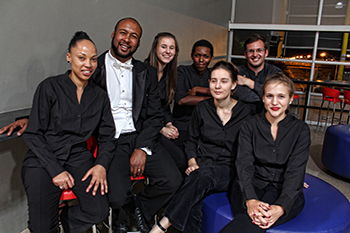Latest News Archive
Please select Category, Year, and then Month to display items
09 December 2020
|
Story UFS entral academic advising team
|
Photo Pixabay

It wasn’t easy, but we all got to this point because we stayed calm and made the effort to learn on even when it was difficult.
The University of the Free State (UFS) has remained committed to supporting you in every way possible, and as you prepare for the final assessments, remember to access the support tools you will need in order to successfully complete the 2020 academic year: https://www.ufs.ac.za/toolsforsuccess
Main exams are running from 30 November to 19 December 2020
All of the best, and break a pen in your upcoming final assessments. For those of you who will be graduating, we cannot wait to see you in that graduation attire; and those who still have some way to go, we cannot wait to serve you again in 2021 as we continue the pursuit of academic success!
Below are five main study tips that you can use for final assessment success:
1. Set a realistic study schedule
You might think that studying for eight hours straight for four days before the exam, will help you get through the work in time. See final edition of the #UFSLearnOn for more information.
2. Structure and organise your work
If your notes are organised, it is also easier for your brain to recall information, even when you become nervous during exams.
3. Practise with an old exam/semester test paper
Practice makes perfect, and although the final assessments might look different in how they are administered, it will still help to practise using old tests and exams.
4. Adapt your strategies to the content
What works for one module or even one learning outcome, might not be effective for another. You need to continually adapt your note-taking and study approaches. See #UFSLearnOn final edition for different study methods.
5. Healthy body, healthy mind
Your brain needs optimal care to perform at its best, and getting physically active (even if it is by jumping in one spot if space is limited) forces your body to release neurotransmitters responsible for positive emotions, which assist in retaining information in your memory …
Download the final edition of #UFSLearnOn that points you towards the resources you’ll need to ace your final assessments and end 2020 off on a high note!
OSM Camerata first place winner in international competition
2017-09-08

The OSM Camerata with conductors, Xavier Cloete and
Gerhard de Jager received first place in the
University/Conservatory Orchestra category.
Photo: Supplied
The OSM Camerata received first place in the 2017 Ictus International Music Competition for bands and orchestras. Marius Coetzee from the Odeion School of Music at the University of the Free State said: “The award was announced in time for the celebration of the orchestra’s fifth birthday.”
OSM a catalyst for excellence
The OSMC was strategically founded in 2012 by Coetzee as the OSM’s flagship chamber ensemble, with the main objective of creating a catalyst for excellence.
Over the past five years, the OSMC has premiered 15 new works by South African composers specially commissioned for them. Highlights remain its participation in the 13th International Conservatory Festival in St Petersburg Russia, where the ensemble received a standing ovation during a gala concert in the Glazunov Concert Hall, as well as the world première of the Cello Concerto for an African Cellist by South African composer, Hans Huyssen, with South African cellist, Heleen du Plessis as soloist. The CD was released in 2014 on the New Zealand Classical Music label, Ode Records in Auckland, New Zealand and was one of five CDs nominated for the Listeners' Choice Award New York in March 2014.
Competition draws participation from Washington to Bloemfontein
The inaugural year of this annual competition drew applicants from Washington State in the US all the way to Bloemfontein in the Free State. Video submissions were judged and narrowed down to a final round from which prize winners were selected.
The OSM Camerata with conductors, Xavier Cloete and Gerhard De Jager, received first place in the University/Conservatory Orchestra category.
The competition was founded to highlight the work that music educators, conductors, students, performers and community members make in ensembles at the university, community, youth, high school and middle school levels.
Competition director, Alex Serio says that “many people do not realise the amount of work that it takes to make these ensembles run. What is more is that most of the public does not realise the level of artistic excellence that can be achieved in these ensembles. Ictus International Music Competition was founded to highlight this level